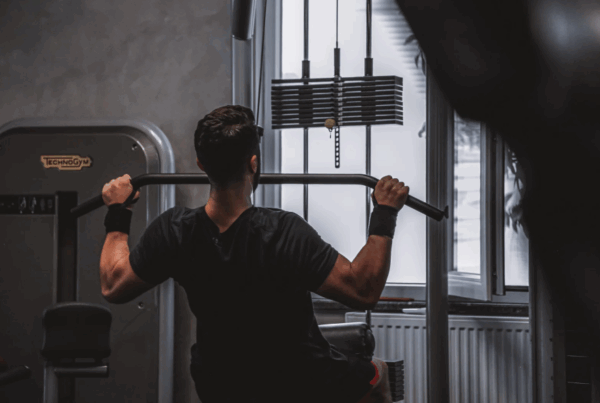As an exercise physiologist, the key to creating and facilitating a successful exercise program lies in building and maintaining strong rapport with clients. There is no doubt about it.
A positive and trusting relationship between an exercise physiologist and a client can lead to better outcomes, faster recovery, and an improved outlook regarding physical activity and health status overall.
We pride ourselves in building the strongest of relationships with our clients, so how do we do it? In this blog post, we share five essential factors for building rapport as an exercise physiologist that have proven to be successful in the work we do.
1. Active Listening
Active listening is a technique that allows us to fully understand and engage with our clients. It involves paying close attention to what clients are saying, both verbally and non-verbally, in order to gain a deep understanding of their concerns, goals, and motivations.
As an exercise physiologist, active listening is crucial in order to create an effective exercise plan that is tailored to each client’s specific needs and goals. It also helps clients feel heard, understood, and valued, which can lead to greater engagement, motivation, and adherence to the program. Importantly, it also means we can identify any potential barriers or challenges that may arise and to develop strategies to overcome these.
2. Practicing Empathy
The benefits of active listening are amplified through empathy. Using empathy in building rapport involves understanding and relating to clients’ feelings and experiences. It means being able to put yourself in their shoes and understand their perspective. This helps to create a sense of connection and trust between us and our clients, which is crucial for building rapport.
By showing empathy, we can help clients feel more comfortable and open up about their concerns, fears, and goals. This allows us to better understand our clients and create an exercise plan that is tailored to their specific needs.Empathy also allows exercise physiologists to provide emotional support and encouragement to clients, leading to greater adherence and success.
3. Prioritising Professionalism
Maintaining professionalism helps to establish trust and respect with clients. Professionalism to us involves having a good understanding of the latest research and techniques in the field, keeping updated with certifications and continuing education, being punctual and organised and modeling positive attitudes.
All together, these things show our clients that we are dedicated to providing them with the best service possible and in turn, clients feel comfortable with their EP’s abilities.
4. Clear Communication
Clear communication involves effectively communicating exercise plans, goals, and progress with clients, as well as answering any questions they may have. It is important to use language that is easy to understand. This means avoiding technical jargon and using simple, clear language that clients can easily understand.
Another important aspect of clear communication is providing regular feedback and being open to discussing progress. This helps them to understand how they are progressing and what they need to do to reach their goals. Conversely, clear communication also involves being open to feedback and being responsive to any concerns that clients may have.
5. Fostering Trust
The majority of clients we meet come to us at a time of high vulnerability in their lives, hence trust is a key component in building rapport. Many of the factors we have touched on so far come together to foster trust. Overall, building trust means being honest, transparent, and consistent when interacting with clients.
Building trust helps clients feel confident in our intentions and abilities as EPs, hence making them more likely to follow the exercise plan and be successful in their recovery journeys.
Author: Tessa Nielsen
Clinical Exercise Physiologist and Content Creator at Specialised Health
#exercisephysiology #exerciserehab #rehabilitation #lifeinsurance #incomeprotection #ctp #workcover #mobile #mobileexercisephysiology #fatigue #mentalhealth #cancer #musculoskeletal #injury #pain #physio #physiotherapy #Sydney #Brisbane #Melbourne #Adelaide #Auckland #Waikato #BayofPlenty #Wellington #Otago #Christchurch



